5 Pillars Of Islam (Submission to allah)
Shahada (Testimony of Faith): Affirming that there is no deity worthy of worship, in truth, except Allah and that the Prophet Muhammad (peace be upon him / ﷺ) is his last and final messenger.
Salah (Prayer): Observing the five daily obligatory prayers as a means of worship to Allah.
Zakat (Charity): Giving 2.5% of your excess wealth to the needy and fulfilling the obligation of providing for the less fortunate.
Sawm (Fasting): Observing fasting during the month of Ramadan, abstaining from food, drink, and other desires from Fajr prayer until Maghrib prayer.
Hajj (Pilgrimage): A major pilgrimage to the Kaaba in Makkah, performed during the first 10 days of the Islamic month of Dhul-Hijjah, following prophetic traditions and involving specific acts of worship, mandatory once in a lifetime for those physically and financially able.
6 Articles of Emaan (Belief)
Tawheed (Belief in Allah): Firm belief in the oneness of Allah, His existence, and His attributes.
Malaeekah (Belief in the Angels): Belief in the existence of angels as created beings who carry out the commands of Allah.
Kutub (Belief in the Divine Books): Belief in the divine revelation of the books affirmed in the Quran such as the Torah, Gospel, the Quran itself, and others.
Rusul (Belief in the Prophets): Belief in the messengers and prophets chosen by Allah to guide humanity, including Prophet Muhammad (peace be upon him / ﷺ).
Yaumul Aakhir (Belief in the Day of Judgment): Believing in the resurrection after death, the accountability for one's own actions, and the ultimate judgment by Allah.
Qadr (Belief in Divine Predestination): Belief in divine decree (predestination), understanding that everything happens according to the knowledge and will of Allah, including the good and the bad.
What is Al Qur’an?
The Islamic sacred book, which is the word of Allah (God) as dictated to Prophet Muhammad (peace be upon him / ﷺ) by the archangel Jibreel (Gabriel) and written down in Arabic. The Qur’an consists of 114 chapters of varying lengths, known as surahs; the first surah is a mandatory part of each salah / the daily ritual worship. These chapters touch upon all aspects of human existence, including matters of doctrine, social organization, and legislation - a blueprint for mankind.
Who is Prophet Muhammad (peace be upon him / ﷺ)?
A Muslim does not refer to him simply as “Muhammad” but normally adds the phrase “peace be upon him” or in Arabic, “صلى الله عليه وسلم” also written as “ﷺ”. He (peace be upon him / ﷺ) is the last and final Messenger of God to be sent to humanity. He was sent to complete the mission of the previous Messengers including Abraham, Moses, Jesus, Noah and others (peace be upon them all / صلى الله عليهم وسلم) of calling people to believing in God and following the guidance and teachings of God. Muslims regard Prophet Mohammad (peace be upon him / ﷺ) as their highest role model and they aim to follow in his footsteps in all of their actions.
Muhammad (peace be upon him / ﷺ) was born in the city of Makkah in Arabia in the year 570 AD and died in 632 AD.
At the age of 40, Prophet Muhammad (peace be upon him / ﷺ) started to receive revelations from God through the angel Jibreel (Gabriel).
These revelations were the word of God, conveyed to Prophet Muhammad (peace be upon him /ﷺ) through the angel Jibreel. Prophet Muhammad (peace be upon him / ﷺ) was told by God that he was chosen as a Messenger for mankind, and that the revelations he was receiving were the holy Qur’an and they were a message from God to all of humanity. He was also instructed to deliver the message to the people, and to teach and guide them. The revelations continued for 23 years until shortly before the death of Prophet Muhammad (peace be upon him / ﷺ).
Prophet Muhammad (peace be upon him / ﷺ) accomplished his mission of delivering the message to humanity. He has left us with the holy Qur’an (the word of God) and the Sunnah (the prophetic traditions). Through his sacrifices and those of his followers, Islam today is the largest and fastest growing religion in the world. At least one out of every five people in the world is a Muslim. It is for this reason that Michael H. Hart (an astrophysicist born in New York City in 1932), in his 1978 book “The 100: A Ranking of the Most Influential Persons in History”, ranked Prophet Muhammad (peace be upon him / ﷺ) as the single most influential person in the history of the world.
Who is Prophet Isa (Jesus - peace be upon him / ﷺ)?
A Muslim does not refer to him simply as “Isa” or “Jesus,” but normally adds the phrase “peace be upon him” or in Arabic, “صلى الله عليه وسلم” also written as “ﷺ”. Islam and Muslims honors all of the prophets and considers Prophet Isa (Jesus - peace be upon him / ﷺ) as one of the greatest of Allah’s prophets to mankind. No other religion in the world respects and dignifies Prophet Isa (Jesus - peace be upon him / ﷺ) as Islam does.
In the Quran, Allah affirms Prophet Isa’s (Jesus - peace be upon him / ﷺ) miraculous birth and his many blessings, and also affirms Mary to have been one of the purest women in all of creation. Muslims, await the second coming of Prophet Isa (Jesus - peace be upon him / ﷺ) as Muslims believe that Prophet Isa (Jesus - peace be upon him / ﷺ) was not crucified nor did he die on the cross. Allah says that Prophet Isa (Jesus - peace be upon him / ﷺ) was raised / elevated to the Heavens and was not killed.
The Prophet (ﷺ) said, "If anyone testifies that None has the right to be worshipped but Allah Alone Who has no partners, and that Muhammad is His Slave and His Apostle, and that Jesus is Allah's Slave and His Apostle and His Word which He bestowed on Mary and a Spirit created by Him, and that Paradise is true, and Hell is true, Allah will admit him into Paradise with the deeds which he had done even if those deeds were few." [Sahih Bukhari - Book of Prophets - Hadith # 3202]
Who are the salaf?
The first three generations of Muslims who are highly regarded for their piety, knowledge, and adherence to the teachings of Islam and the Prophet Muhammad (pbuh). These generations are known as the Salaf As-Saalih or the Pious Predecessors. They include:
The Sahaba (Companions of the Prophet Muhammad, peace be upon him / ﷺ): These are the companions who had the opportunity to meet, interact with, and learn directly from the Prophet Muhammad (peace be upon him). They are considered the best generation of Muslims, and their understanding and implementation of Islam are highly respected.
The Tabi'in (Followers): The Tabi'in are the generation of Muslims who followed the Sahaba. They learned from the companions and, although they did not have the direct companionship of the Prophet Muhammad (peace be upon him / ﷺ), they played a crucial role in preserving and transmitting the prophetic traditions and Islamic knowledge.
The Tabi' al-Tabi'in (Followers of the Followers): This generation refers to the Muslims who came after the Tabi'in and learned from them. They continued the transmission of Islamic knowledge and contributed to the development of Islamic jurisprudence, theology, and other areas of Islamic sciences.
The rightly guided Salaf are held in high esteem by Muslims worldwide as they are seen as exemplary models of faith, piety, and righteous conduct. Their adherence to the Quran and Sunnah (the teachings and practices of the Prophet Muhammad, peace be upon him / ﷺ), serves as a source of inspiration for Muslims seeking to understand and follow Islam authentically.

